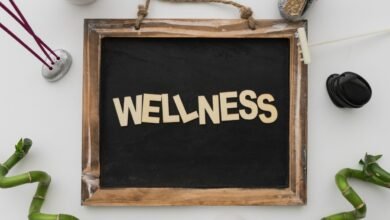Best Tips for Healthy Aging in 2023

As we age, it becomes increasingly important to prioritize our health and well-being. While we cannot stop the aging process, we can take proactive steps to ensure that we age gracefully and maintain a high quality of life. In this article, we will explore the best tips for healthy aging in 2023, highlighting different lifestyle factors that can promote overall well-being and vitality.
Aging is a natural part of life, and with the right approach, it can be a fulfilling and enriching journey. By making conscious choices and adopting healthy habits, we can promote longevity, maintain our physical and mental capabilities, and enjoy a vibrant and active lifestyle well into our golden years.
Read More: 7 Daily Habits for a Healthy Life in 2023
Understanding the Aging Process
As we age, our bodies go through various changes. Understanding these changes is essential in developing strategies to maintain optimal health. The aging process affects different aspects of our lives, including physical, mental, and emotional well-being. By understanding these changes, we can better prepare ourselves to adapt and thrive.
Maintaining a Healthy Diet

A balanced and nutritious diet plays a vital role in healthy aging. Consuming a wide variety of nutrient-rich foods can provide the necessary vitamins, minerals, and antioxidants to support our body’s functions and combat age-related conditions. Incorporating superfoods, such as berries, leafy greens, and fatty fish, can provide additional health benefits and boost our overall well-being.
Staying Physically Active
Regular exercise is crucial for maintaining mobility, strength, and overall vitality as we age. Engaging in physical activities can improve cardiovascular health, increase muscle tone, and enhance flexibility. It is important to find exercise routines that are suitable for aging individuals, such as low-impact exercises, yoga, or swimming, which are gentle on the joints while providing substantial health benefits.
Prioritizing Mental Health
Taking care of our mental well-being is just as important as caring for our physical health. Practicing mindfulness and meditation can help reduce stress levels, improve cognitive function, and enhance overall mental clarity. Engaging in cognitive activities, such as reading, puzzles, or learning new skills, can also contribute to maintaining a sharp mind and preventing age-related cognitive decline.
Quality Sleep for Healthy Aging
Getting sufficient and quality sleep is crucial for healthy aging. Establishing a consistent bedtime routine, such as winding down with a relaxing activity and avoiding screens before bed, can signal the body to prepare for sleep. Creating a sleep-friendly environment with a comfortable mattress, proper ventilation, and a dark, quiet atmosphere can promote better sleep hygiene and ensure restful nights.
Managing Chronic Conditions
As we age, the risk of developing chronic conditions, such as heart disease, diabetes, or arthritis, increases. Regular health check-ups and screenings can help detect and manage these conditions effectively. It is essential to work closely with healthcare professionals, adhere to medication and treatment plans, and make necessary lifestyle modifications to keep these conditions under control and maintain overall well-being.
Social Connections and Emotional Well-being
Maintaining social connections and nurturing relationships is vital for emotional well-being and healthy aging. Socializing with friends, family, and community members can reduce feelings of loneliness and isolation. Engaging in activities, joining clubs or organizations, and participating in volunteer work can provide a sense of purpose and fulfillment, promoting a positive outlook on life.
Embracing Technology for Aging Well
In today’s digital age, technology can play a significant role in promoting healthy aging. Assistive devices and mobile applications designed for seniors can assist in various aspects of daily life, such as medication reminders, fitness tracking, and fall detection. Virtual connections, video calls, and telehealth services allow older adults to stay connected with loved ones and access healthcare services conveniently.
Enhancing Skin Health
Taking care of our skin becomes increasingly important as we age. Developing a skincare routine that includes gentle cleansing, moisturizing, and sun protection can help maintain skin health and delay the signs of aging. It is crucial to use products specifically formulated for aging skin and to protect the skin from harmful UV rays by wearing sunscreen and seeking shade when necessary.
Maintaining a Healthy Weight
Striving for a healthy weight is beneficial for overall health and healthy aging. Balancing caloric intake with physical activity can help prevent weight gain and the associated risks, such as heart disease and diabetes. Incorporating strength training exercises into the fitness routine can help maintain muscle mass and bone density, supporting overall physical function and mobility.
Avoiding Unhealthy Habits
Certain habits can accelerate the aging process and negatively impact overall health. Smoking and excessive alcohol consumption can lead to various health conditions and contribute to premature aging. It is crucial to quit smoking and limit alcohol intake to maintain optimal health. Additionally, managing stress levels through relaxation techniques, hobbies, or seeking support can promote healthy aging.
Coping with Age-Related Changes
As we age, it is essential to embrace the changes that come with the natural aging process and practice self-acceptance. Embracing new experiences, adapting to physical and lifestyle changes, and nurturing a positive mindset can contribute to a fulfilling and enjoyable aging journey. Seeking support from friends, family, or professional counselors when needed can provide valuable guidance and emotional well-being.
Conclusion
Aging gracefully in 2023 is within reach for everyone. By understanding the aging process and implementing healthy lifestyle choices, such as maintaining a nutritious diet, staying physically active, prioritizing mental health, getting quality sleep, and embracing technology, we can optimize our overall well-being and enjoy a fulfilling life as we age. Remember, it’s never too late to start adopting these habits and investing in your health.
Read More: How to start a healthy life
FAQs
1. How can I slow down the aging process?
Slowing down the aging process involves adopting a healthy lifestyle, including a balanced diet, regular exercise, adequate sleep, and stress management. Avoiding unhealthy habits such as smoking and excessive alcohol consumption can also help slow down the aging process.
2. Are there any specific foods that promote healthy aging?
Yes, several foods are beneficial for healthy aging. Some examples include berries, leafy greens, fatty fish rich in omega-3 fatty acids, nuts, whole grains, and lean proteins. These foods are packed with essential nutrients and antioxidants that support overall health and combat age-related conditions.
3. Can exercise help improve cognitive function in older adults?
Yes, regular exercise has been shown to have positive effects on cognitive function in older adults. Physical activity promotes blood flow to the brain, stimulates the growth of new neurons, and enhances memory and cognitive abilities.
4. What can I do to improve the quality of my sleep as I age?
To improve sleep quality, establish a consistent bedtime routine, create a sleep-friendly environment, avoid stimulating activities before bed, and limit caffeine intake. Additionally, practicing relaxation techniques like deep breathing or meditation can help promote better sleep.
5. Is it normal to experience changes in my skin as I get older?
Yes, it is normal to experience changes in the skin as you age. The skin becomes thinner, drier, and less elastic over time. Fine lines, wrinkles, age spots, and changes in texture may also occur. However, maintaining a proper skincare routine, protecting the skin from the sun, and staying hydrated can help minimize these effects.







